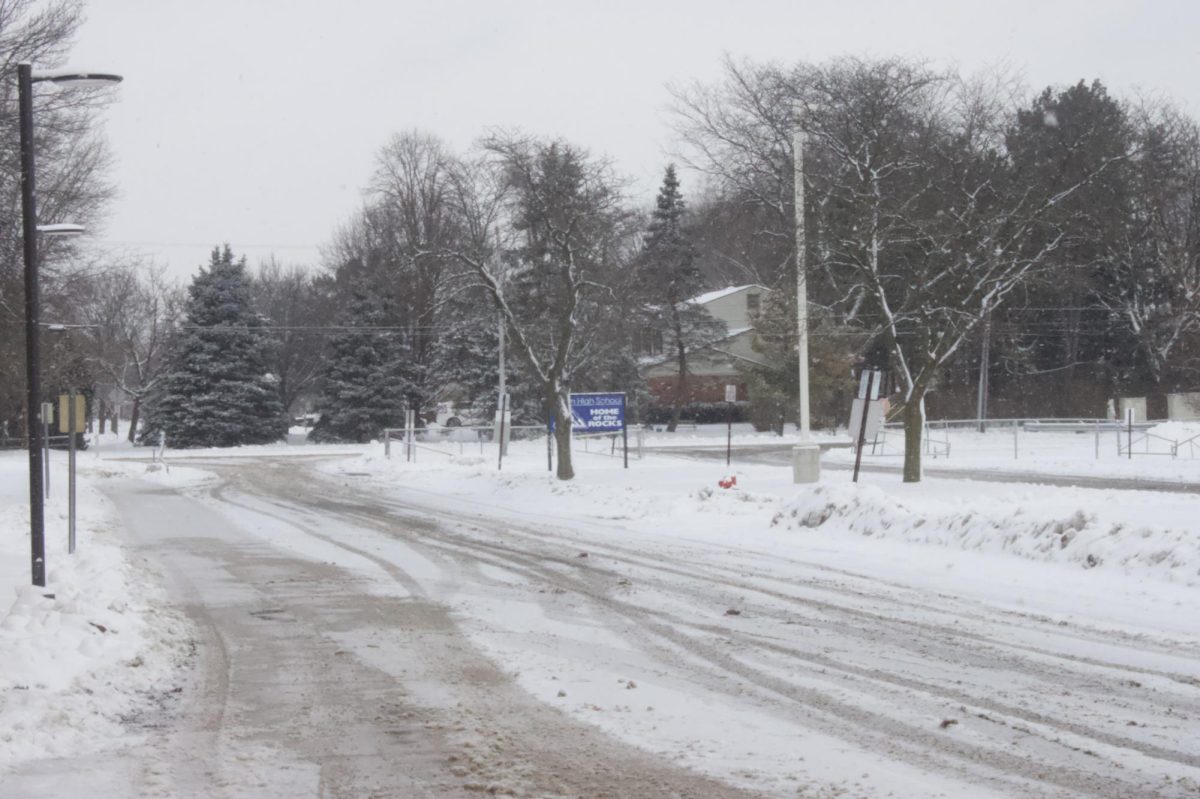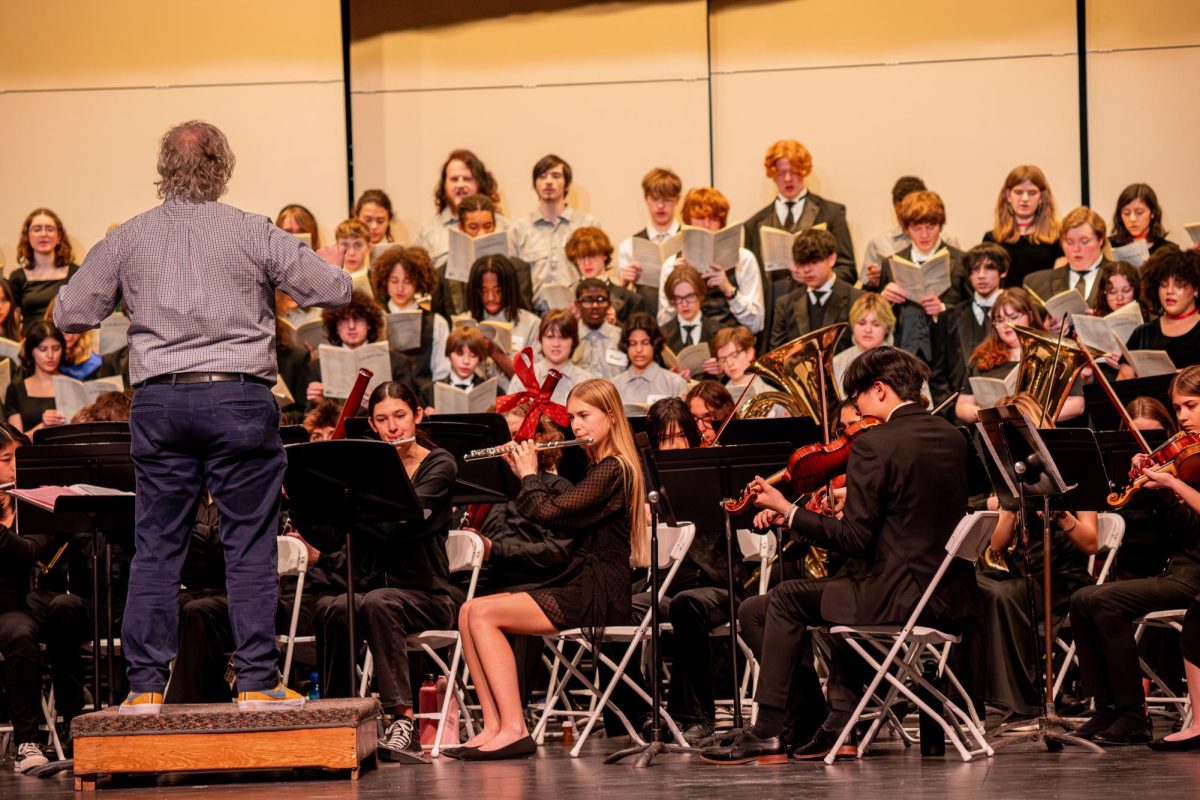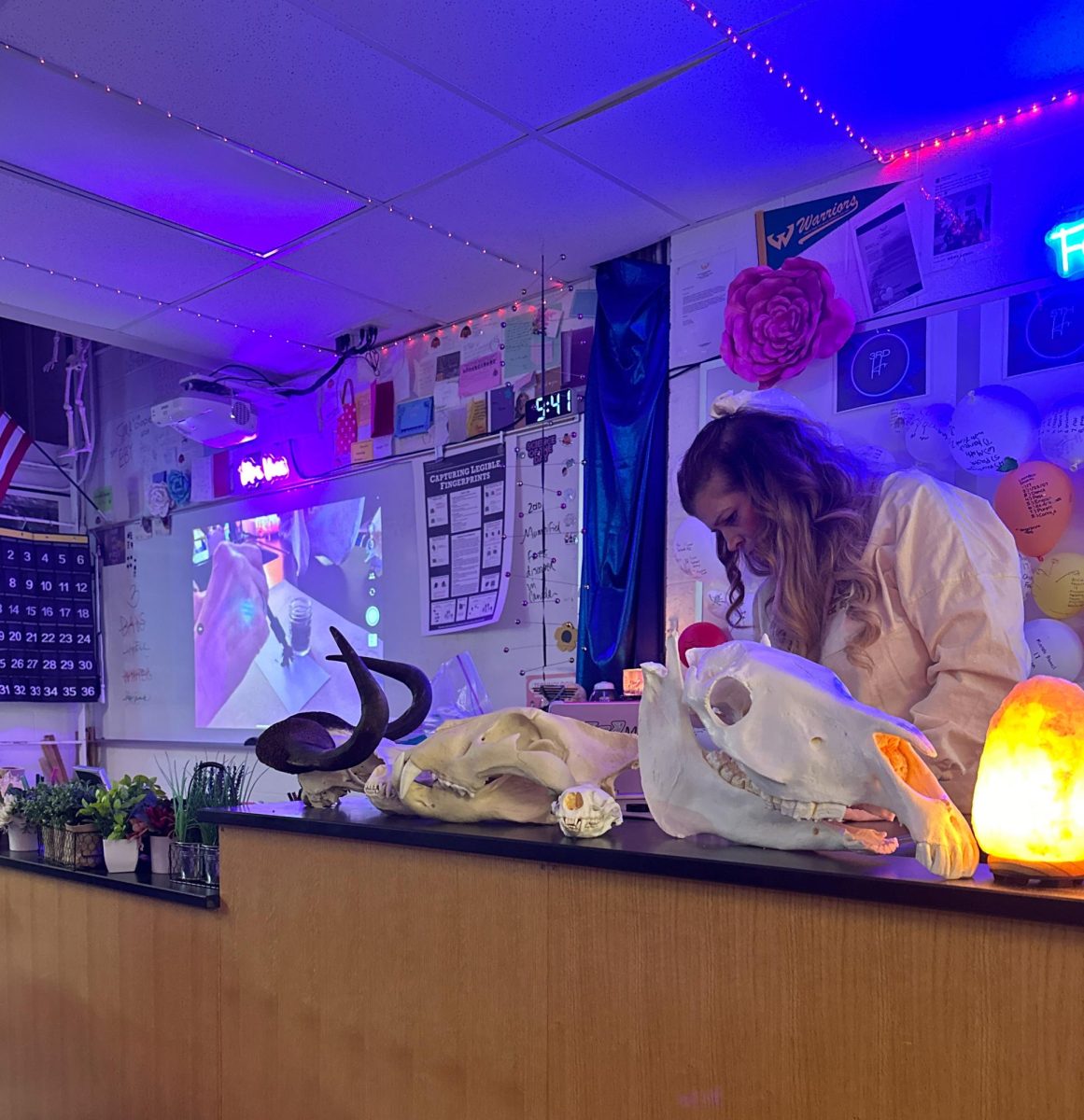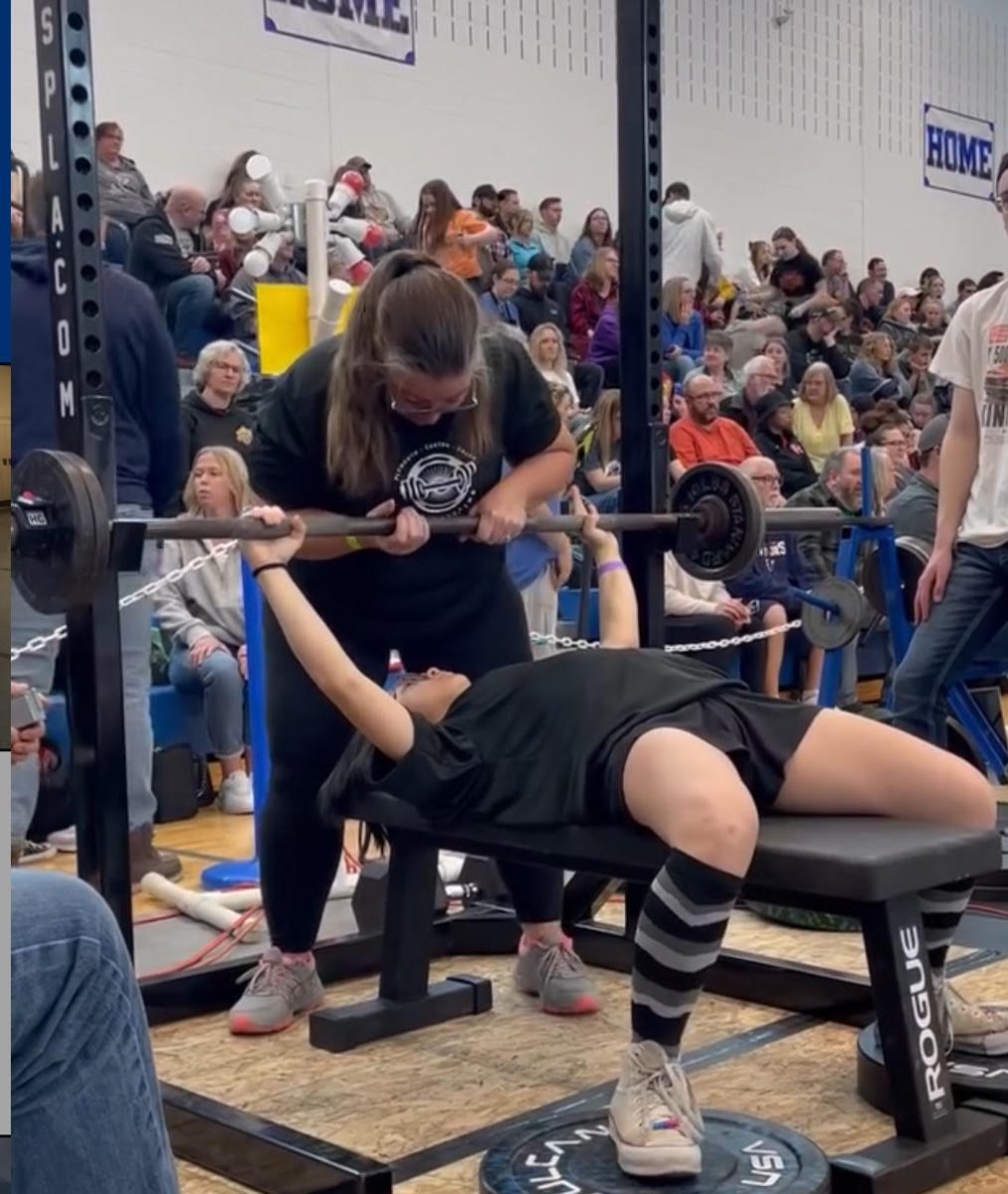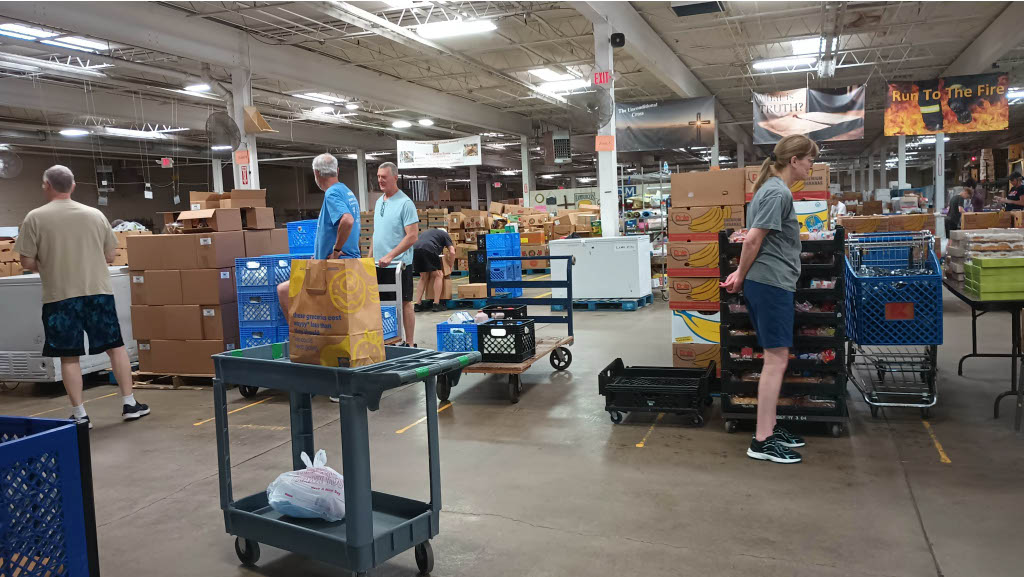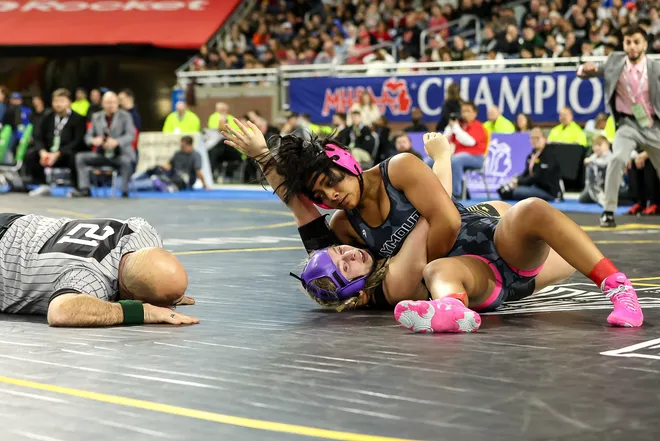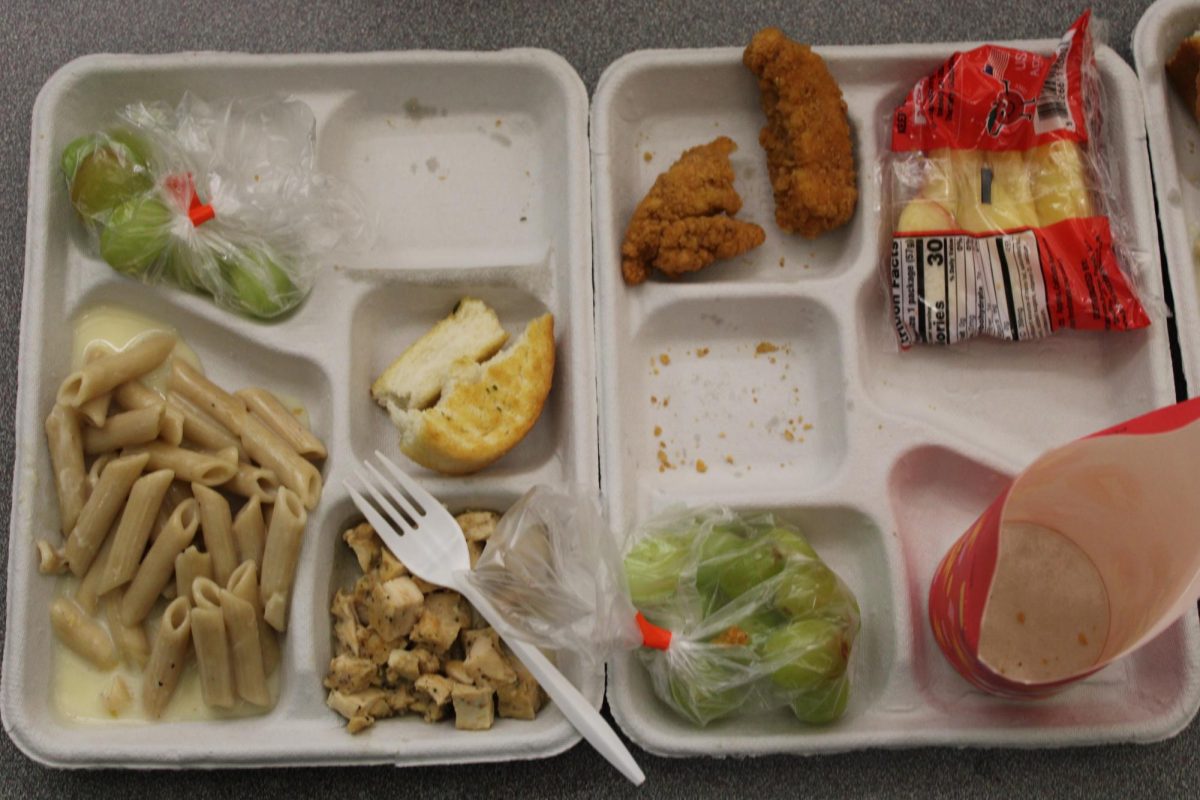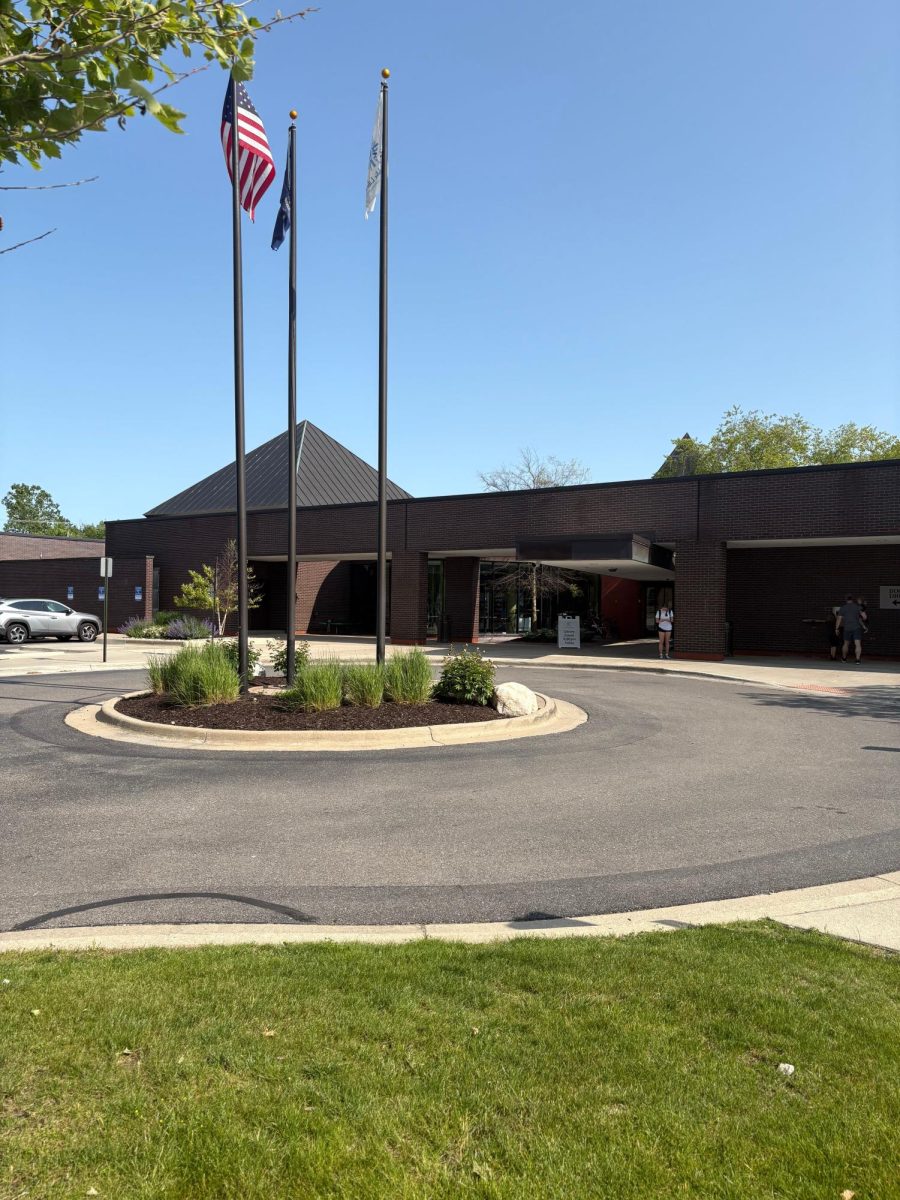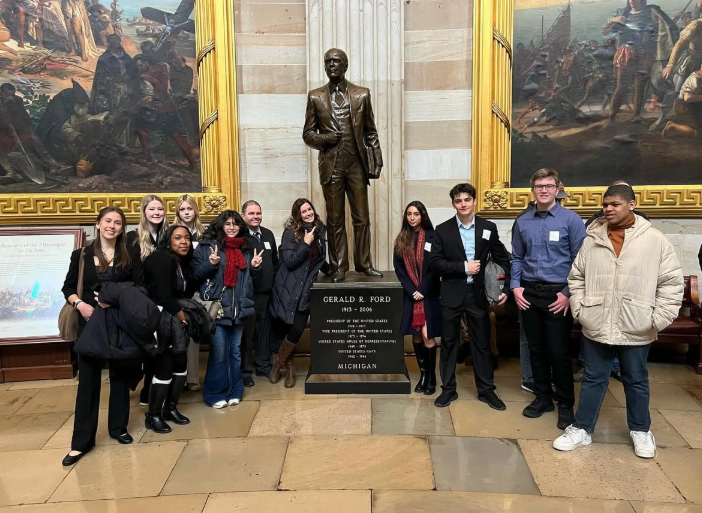After the hottest year on record, as reported by NASA, weather patterns are changing. Temperatures are rising, precipitation is increasing, and there are more extreme weather events. According to the U.S. Environmental Protection Agency (EPA), while snowfall has generally decreased in the U.S., some areas in the Midwest region have experienced increased snowfall. As a result, winter weather conditions impact the daily lives of many and remain a challenge to new drivers.
Salem junior Aine Morton got her license in August 2023 and began driving to and from school in September 2023. Morton parks at the Plymouth High School parking lot every morning and has experienced difficulties with driving during the winter at P-CEP.
“When I was turning a corner, I lost control for a second which was really scary,” said Morton.
Another new driver, Salem junior Anna Gonzales, got her license in September 2023. Gonzales also parks at Plymouth and has had difficulty driving in the winter, even before reaching P-CEP.
“I don’t live on a main road, so my street doesn’t get cleared which makes it really hard to drive,” said Gonzales.
Canton senior Emily Cole has been driving to school since her sophomore year after getting her driver’s license in the summer of 2021. Cole provided her advice to less experienced drivers:
“Remember to keep more space between cars, [and] test your brakes in the neighborhood before leaving to see if there is ice,” said Cole. “[You] don’t have to go the speed limit. Keep the car in AWD [All Wheel Drive] if applicable and stop sooner than in regular conditions.”
Allen Hagerman, general manager of A&A Driving School, has spent over 30 years teaching new drivers how to maneuver in all seasons and offered his recommendations about driving during the winter:
“Allow more time before leaving. You may get rushed and not clean off your car properly. This will increase the amount of blind spots and make dangerous winter driving even more treacherous.”
According to Hagerman, one of the most common types of accidents, rear-end collisions, are often caused by drivers aged 16 to 19. When combined with icy conditions, the problem becomes even more prevalent.
“People forget that snow and ice [are] slippery. They think they can get up to the speed limit or faster but forget that at some point they’ll have to stop or turn,” said Hagerman. “In icy conditions, you should be [driving] 20% below the posted speed limit. If you slide into someone it is your fault [and] you can’t blame the ice or snow.”
According to Michigan Auto Law, fatal winter crashes increased by 17% from 2018 to 2022, from 75 to nearly 90 fatal crashes per year. In addition, “Approximately 40% of the overall winter crashes in Michigan in 2022 involved drivers driving at a speed that was ‘too fast’ for conditions.”
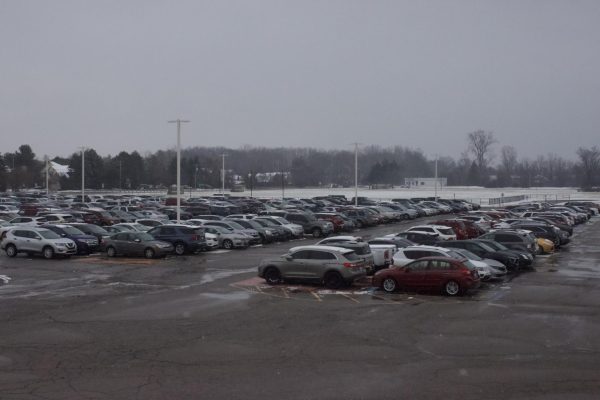
P-CEP Safety and Security Manager, Eric Kolke, has been working at P-CEP since early August of 2021, after retiring from the Canton Police Department in late July of 2021. According to Kolke, who has 10 years of experience in the Canton traffic unit, speeding and distracted driving are the biggest problems and cause a majority of the accidents that take place during the winter months.
“[Drivers are] deciding to look at something else other than the roadway. And that’s the biggest problem,” said Kolke. “They’re distracted by their phones or by their friend, or whatever it is.”
Regardless of the snow and ice, distracted driving is a leading cause of fatal crashes for drivers of all ages. According to the National Highway Traffic Safety Administration (NHTSA), in the U.S., over 3,500 people were killed due to distracted driving in 2021.
Snow and icy road conditions play a significant role in school cancellations. So far in the 2023-24 P-CCS school year, three snow and ice days have been called due to anticipated dangerous driving conditions.
“[P-CCS] Director of Operations Richard Welch is always watching the weather to decide whether or not to leave open the school,” said Kolke. “They will usually go out at about 3 or 4 a.m. and drive the roads to see how bad they are, then decide whether or not to close school.”
Officer Melissa Andes, who works for the Canton Police Department and is the School Resource Officer at P-CEP, noted that there is not a significant difference between the number of accidents in the winter compared to other seasons.
“When it first starts to snow, there’s probably more [accidents], but we get a lot of accidents when it rains too, in the summer. So it’s all dependent on the driver really,” said Andes.
Michigan is often known for its unpredictable weather, and new drivers are not exempt from this. By using appropriate precautions and care, new drivers can practice driving safely during the winter months.
“We’re Michiganders–when it first starts snowing we don’t know how to drive, then about a week in, we remember how to do it again,” said Kolke, laughing.
If students get into an accident during school hours, they should contact the security office or 911. If the accident occurs after hours, students should call 911 for help.
“If you’re able to move off the road safely, I would highly recommend that and then call 911 and we can come out. It [doesn’t] always result in a police report,” said Andes. “[We] talk to both parties, make sure that they’re okay [and that] they don’t need medical attention. And then we can go on from there.”


